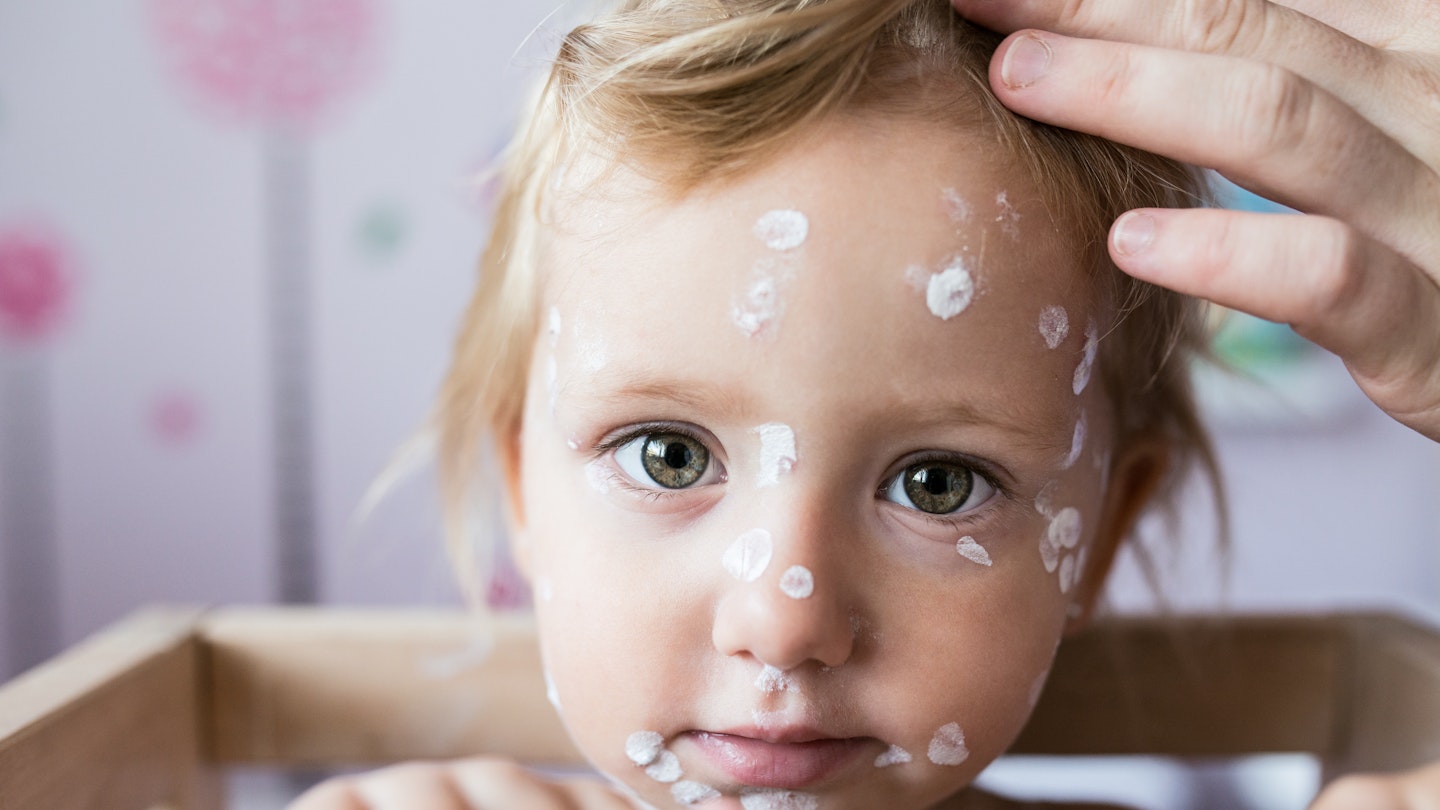Chickenpox is a common childhood illness caused by the caused by the varicella zoster virus, that most children will catch at some point in their lives.
The virus is caught from spreading through the air and through direct contact with fluid from the blisters on skin that the virus causes. It’s more common under the age of ten years old, so it’s likely your little one will experience this illness during the nursery and primary school years.
Christmas 1985, I remember the itchy, miserable illness myself, as my mum battled with me to dab Calamine lotion onto my inflamed spots.
In healthy children, serious complications are not common, but in rare cases it can lead to septic shock as a result of the blisters becoming infected, as well as pneumonia and encephalitis.
Many years later, history repeating itself, the Calamine and ViraSoothe battles were my own, with my two little ones who had quite a nasty case together.
My little girl who was only five at the time, had a particularly bad case and even got them on the bottom of her feet, the palms of her hands and in her mouth. She could barely walk or eat until they were healed. It was truly awful.
Although it’s considered to be a mild illness, Chickenpox can leave your child feeling pretty poorly and miserable. In healthy children, serious complications are not common, but in rare cases it can lead to septic shock as a result of the blisters becoming infected, as well as pneumonia and encephalitis.
Many parents are now considering purchasing the recently available two-course vaccine to spare their little ones suffering the ill-effects of Chickenpox.
There are two chickenpox vaccines currently available to children 12 months and over. The brand names being VARIVAX and VARILRIX.
Read more: What you need to know about the flu vaccine for children
Should my child have the Chickenpox vaccine?
As with all things parenting - it’s about making an informed choice that is right for you and your family, so do your research before making any decision.
While many parents feel Chickenpox is just part of childhood, almost a ‘rite of passage,’ many parents don’t want their little ones to go through the discomfort and often traumatic symptoms of Chickenpox.
Mum Sam Dixon says she would've gladly vaccinated if she had known how ill her daughter would've been: ‘My daughter had chicken pox, and I have honestly never seen her so ill. It's so much more than just a few spots that itch and can leave a scar. She was covered head to toe with hardly a pin space between each spot, she had them on, and in, her bottom, front and back, which made going to the toilet absolute agony for her. If there was an option to have had this vaccine for her, to save her suffering like she did for the week and a half she had it, I wouldn't have hesitated to get it.’
Mum Emma Jackman agrees; ‘My son had it when he was two and it was awful. We had to take him to hospital a couple of times as we couldn't control his extremely high temperature.
Public Health England has expressed concerns that the introduction of such a vaccine could increase the risk of adults contracting chickenpox or shingles
Public Health England has expressed concerns that the introduction of such a vaccine could increase the risk of adults contracting chickenpox or shingles.
It warned that a vaccination programme would mean fewer children catch the infection as it would not be in such high circulation, leaving unvaccinated children susceptible to contracting chickenpox later in life where symptoms and complications are much more serious. In some cases it can lead to pneumonia, or the immunocompromised can develop septicaemia or meningitis.
An adult contracting Chickenpox during pregnancy for example, could put both themselves and their unborn baby at risk of complications.
Sarah Quirk, Director of Quintessential Childcare Ltd. agrees; ‘I have 3 children, two who have had it, youngest hasn't. I considered immunising. I read up on it and was intrigued by the reasons not to immunise. As I read on, I learnt that being around children who had Chicken pox meant our immunities worked harder protecting us from catching chicken pox again, or shingles. So in actual fact having it in circulation protected us more making our bodies work harder to protect us. I understand that there will always be the need to protect those with weaker immune systems but those of us that can fight it it makes more sense to not make it an illness to immunise from. As a result my youngest isn't immunised. Yes it is an horrendous childhood illness, my daughter was seriously ill with it. However reading the reasons why not to immunise seem very valid and seems to protect more people in the long run.’
Is the Chickenpox vaccine part of the childhood immunisation programme?
In many countries around the world the varicella vaccine (MMRV) is part of routine childhood vaccinations, but currently, here in the UK, it is not included in the immunisation program.
Instead, it can be can be purchased privately for £130 for a two-course vaccine from certain Superdrug stores across the UK.
The vaccine is however, free on the NHS for certain individuals, including those who:
-
take long-term steroid tablets
-
are having chemotherapy
-
have had their spleen removed
-
have had an organ transplant and are using immunosuppressant medicines
-
have been diagnosed with HIV or AIDS
The NHS also recommended the vaccination for:
-
brothers and sisters of a child who has leukaemia
-
a child whose parent is having chemotherapy
If you think that you or a member of your family or household needs the chickenpox vaccine, or you have any concerns about immunising against Chicken pox, please contact your GP for advice.
Read next, 10 ways to unblock your baby's nose:
Baby's blocked nose
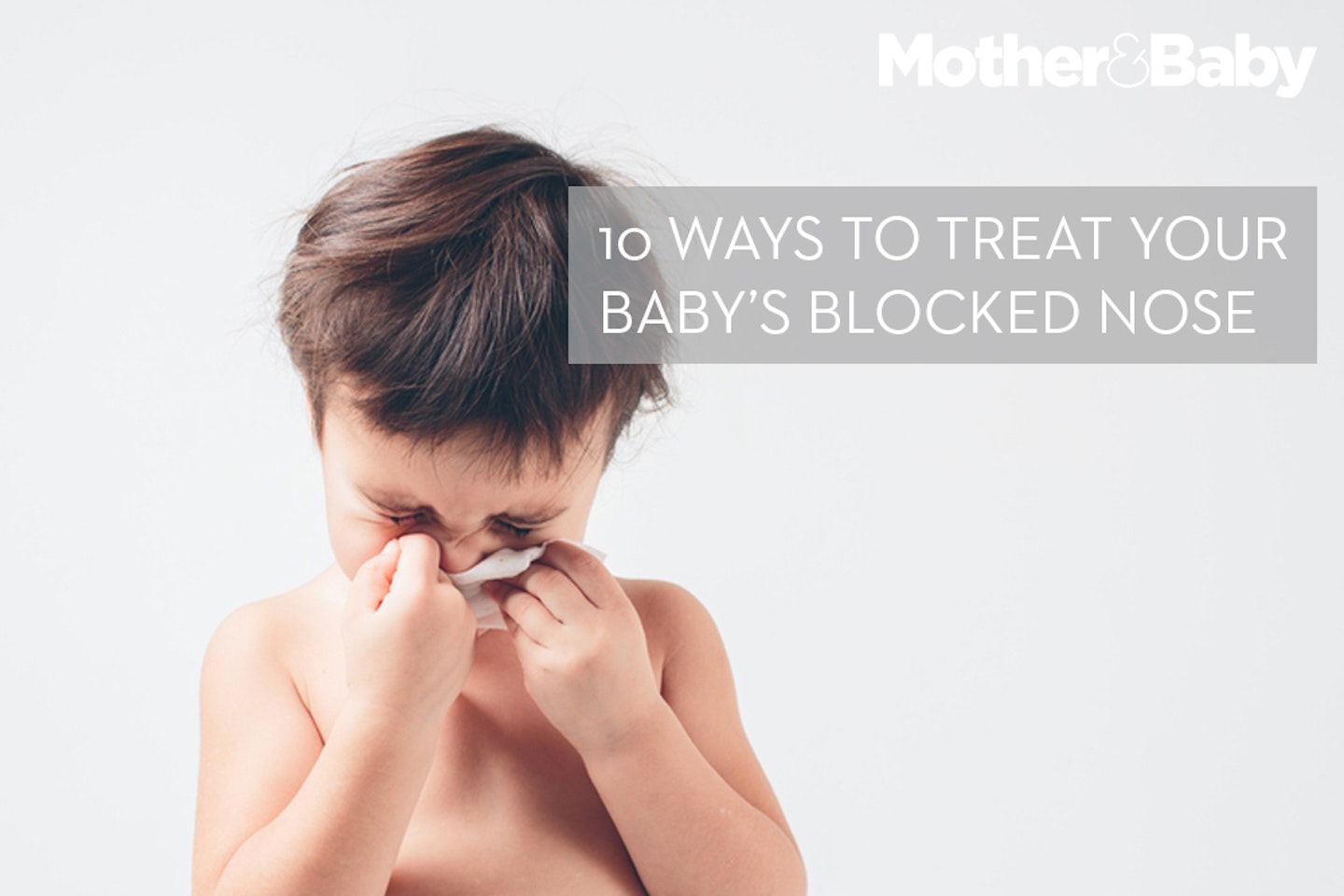 1 of 11
1 of 11blockednose
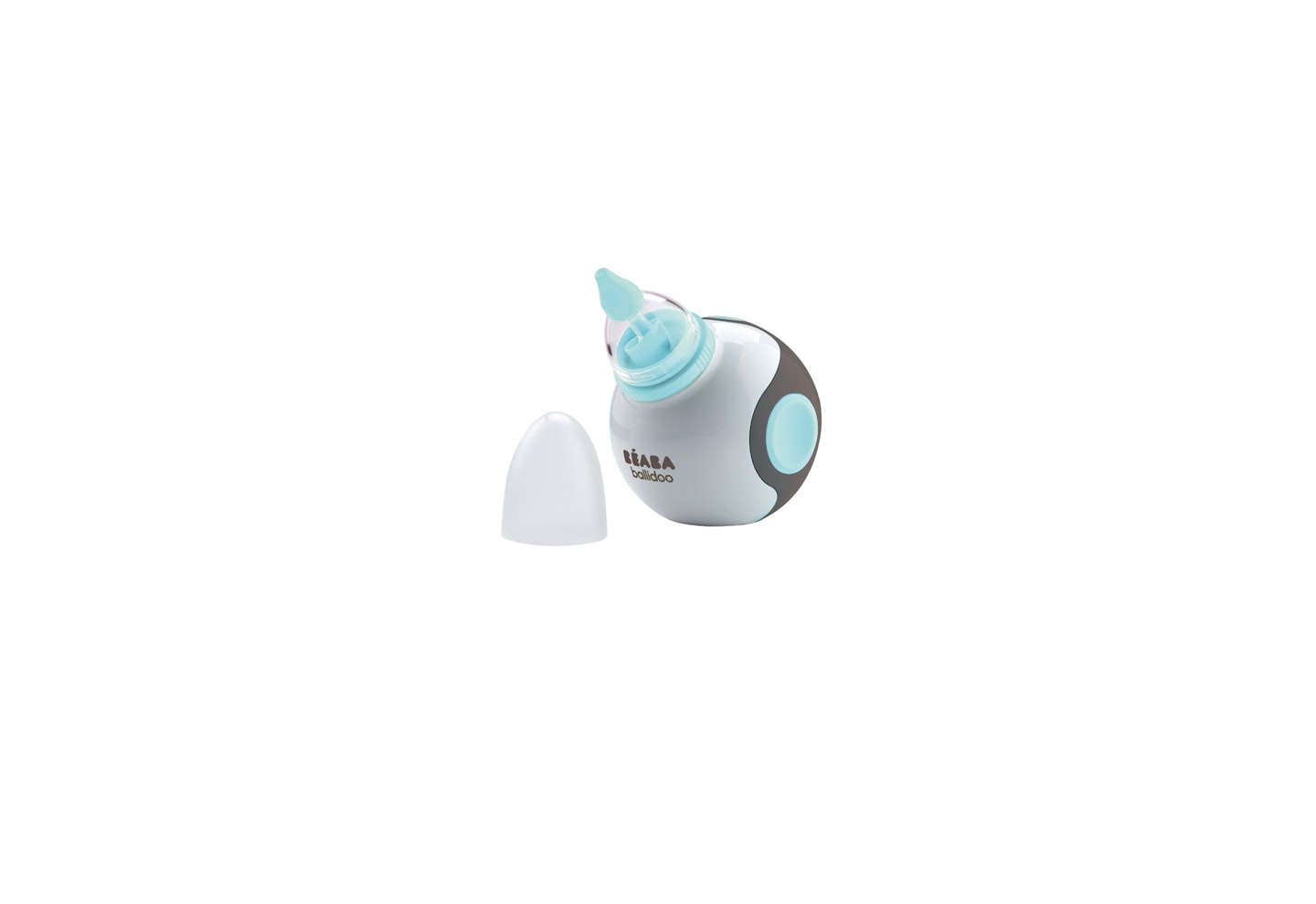 2 of 11
2 of 11BEABA Ballidoo Electric Nasal Aspirator, £39, amazon.co.uk
It’s not always fun cleaning your baby’s nose but you can do it easily with this electric aspirator. It has a low noise level so it won’t scare your baby and the small ergonomic shape makes it easy to hold. You can also adjust the aspiration strength according to your little one’s age.
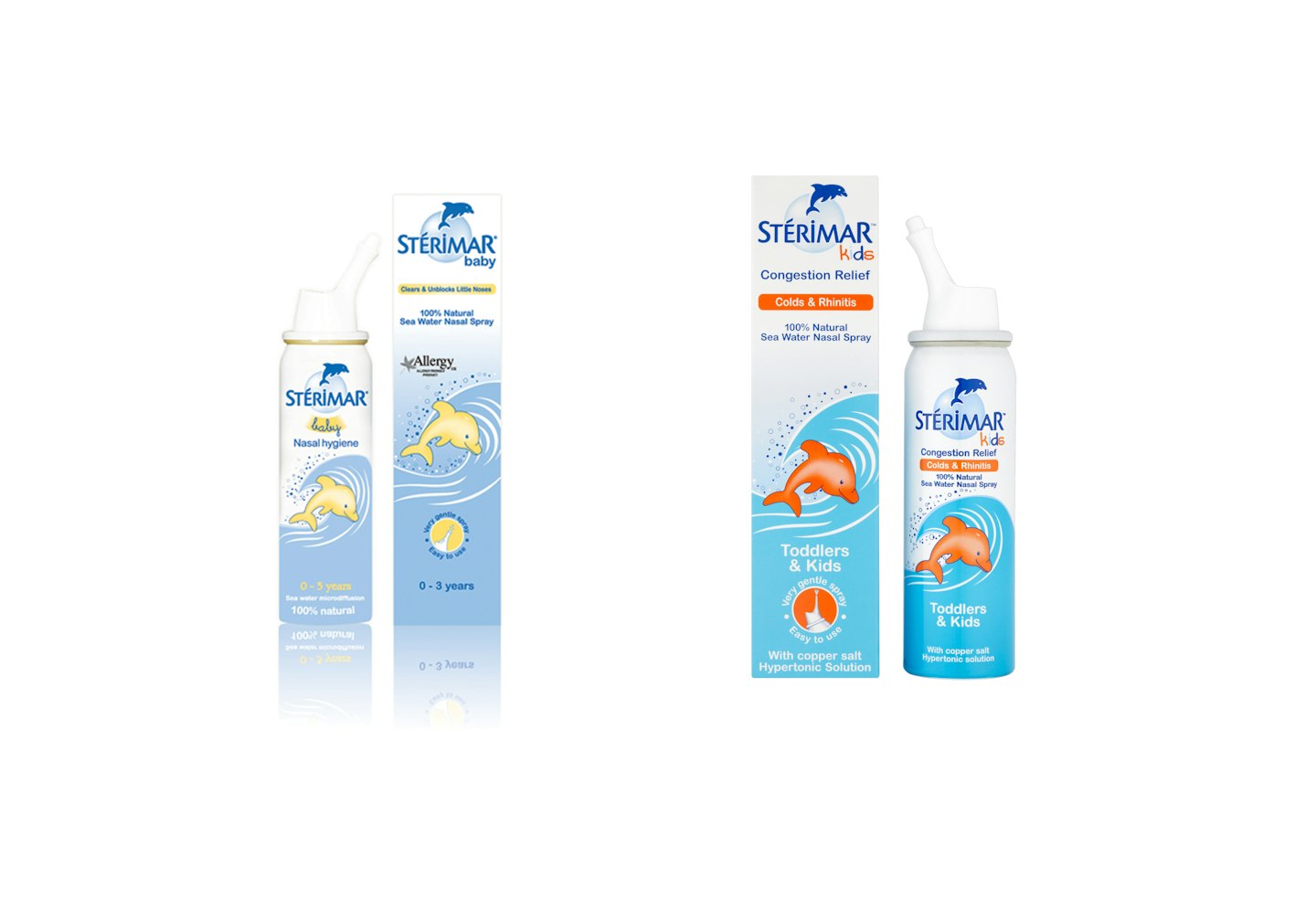 3 of 11
3 of 11Stérimar Kids Spray, £7.05, Amazon
This nasal spray is safe to use from three months old, so perfect if your baby has picked up the sniffles. It’s a 100% natural isotonic solution made from seawater that gently clears and unblocks your baby’s nostrils by clearing impurities and moisturising nasal passages. In clinical studies, it’s been proven to improve breathing which leads to better feeding and sleeping.
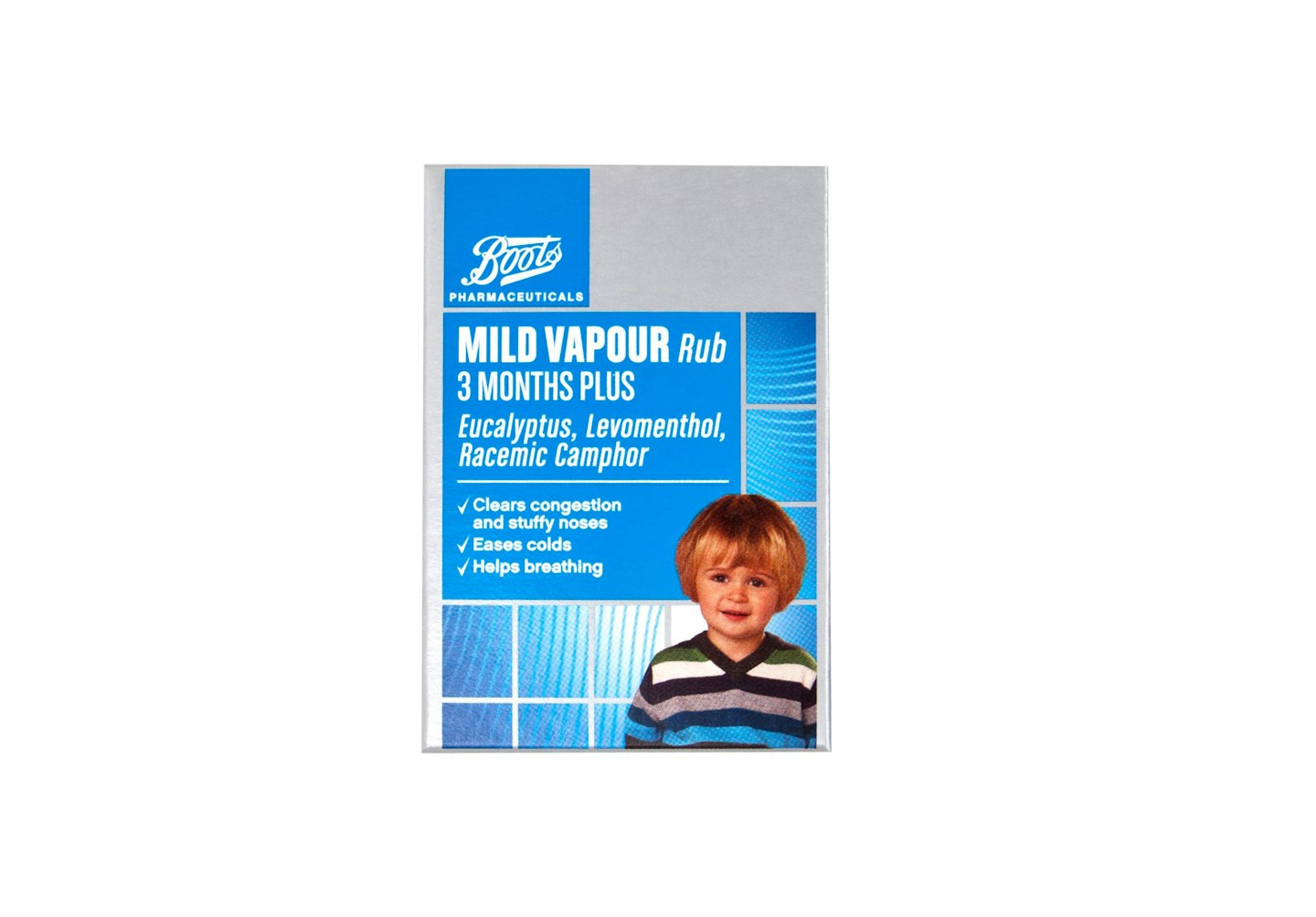 4 of 11
4 of 11Boots Pharmaceuticals Mild Vapour Rub 3 Months Plus, £3.39, boots.com
This vapour rub contains a combination of volatile oils for effective cold relief. It can be used to clear congestion, blocked noses and coughs due to colds. Rub a small amount into your toddler’s chest and back, when needed. Especially useful if applied just before bedtime to aid sleep.
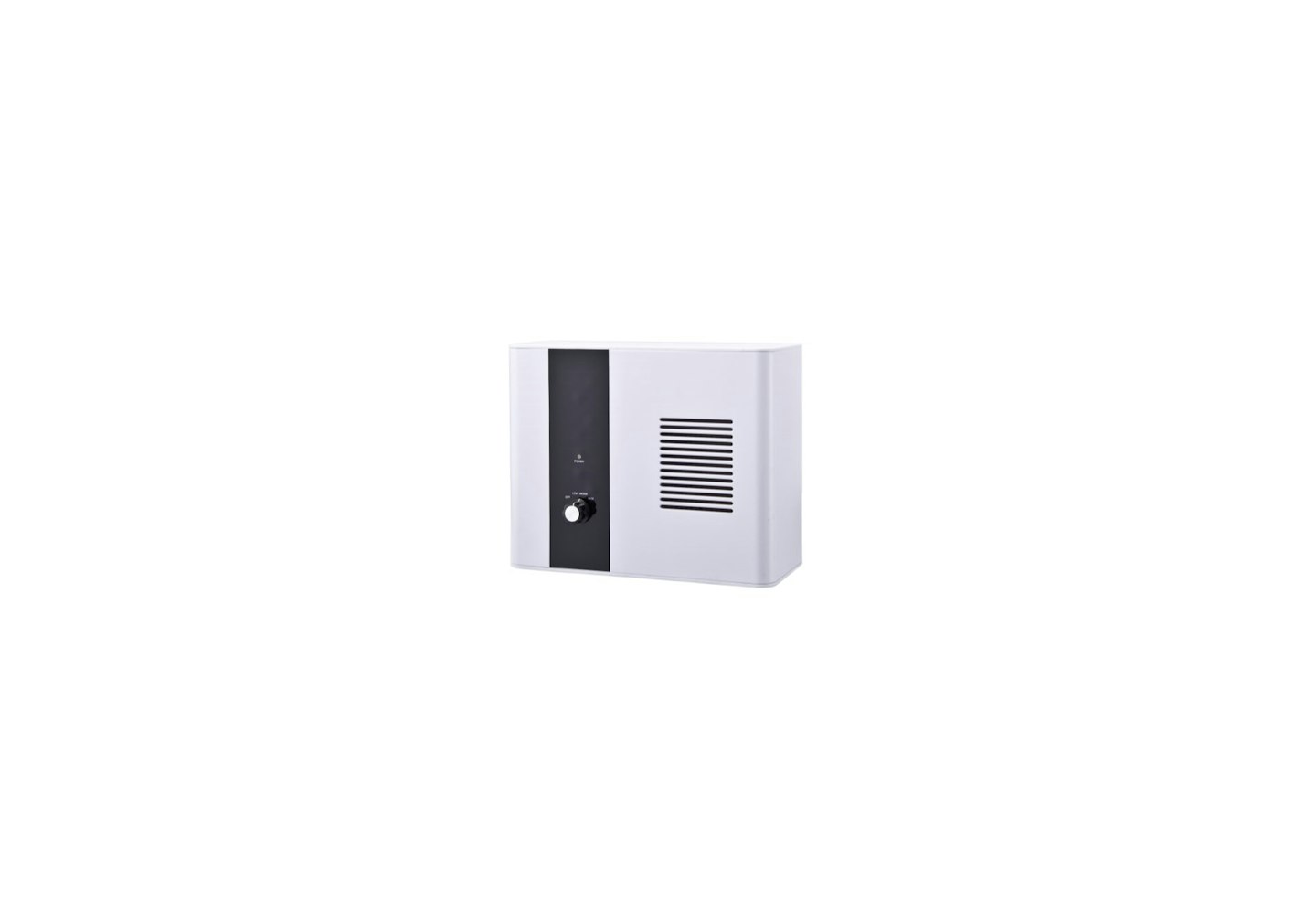 5 of 11
5 of 11ElectrIQ Air Purifier, £49.99, Amazon
This purifier helps clear and also prevent congestion, by clearing the air of your baby’s room of bacteria, indoor pollutants and odours, too. It uses special filters and ionisers, which sterilise the air and kill bacteria. The result is a much more hygienic and natural environment for your baby which can help ease and prevent allergies and congestion.
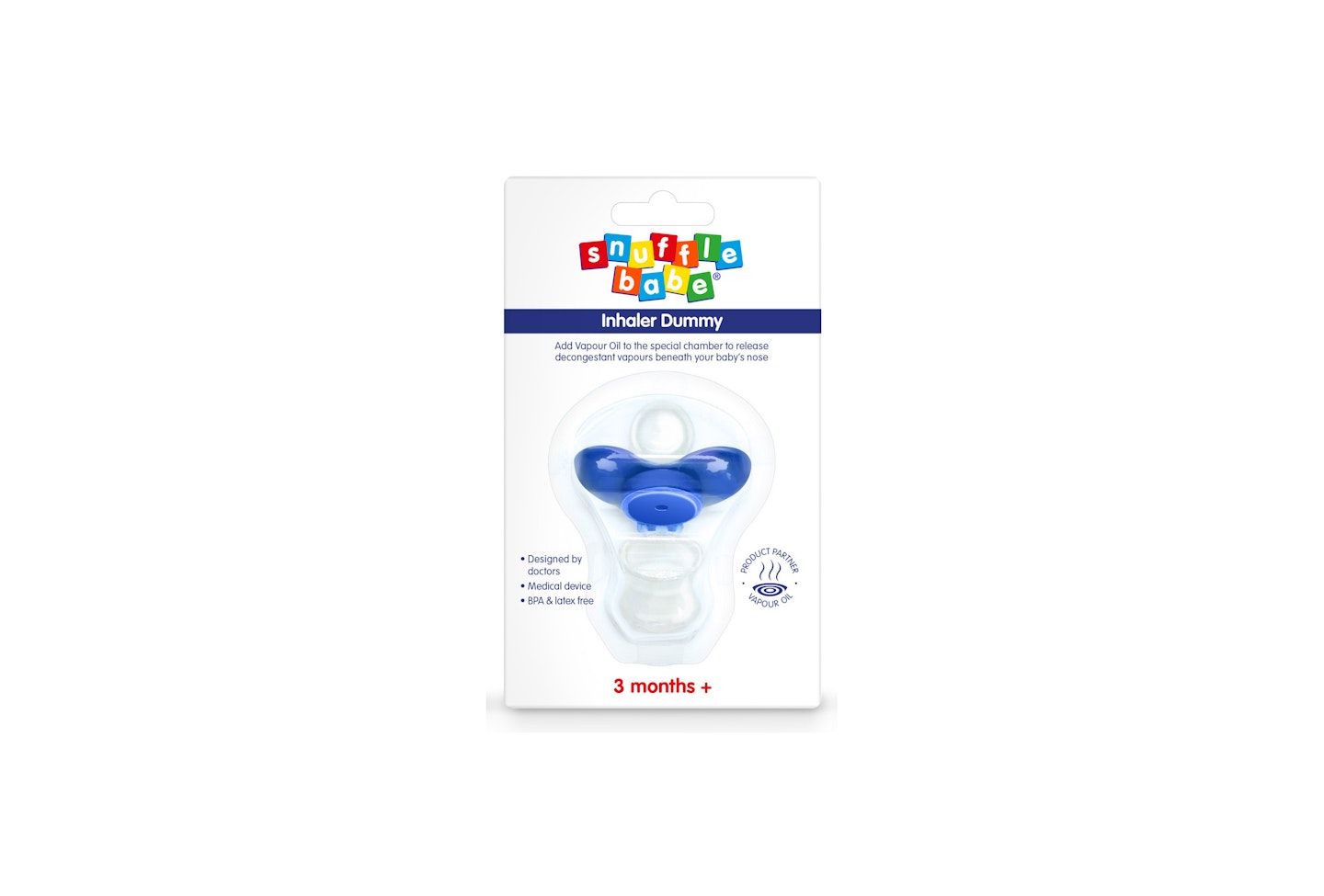 6 of 11
6 of 11Snufflebabe Inhaler Dummy, £7, tesco.com
This dummy has been created by doctors to use alongside Snufflebabe vapour oil. You simply put a few drops into the special compartment in the dummy, which sits near your baby’s nose, so that he can inhale the vapours while he sucks on the dummy. The oil contains a blend of lemon, pine and tea tree essential oils. Suitable from three months.
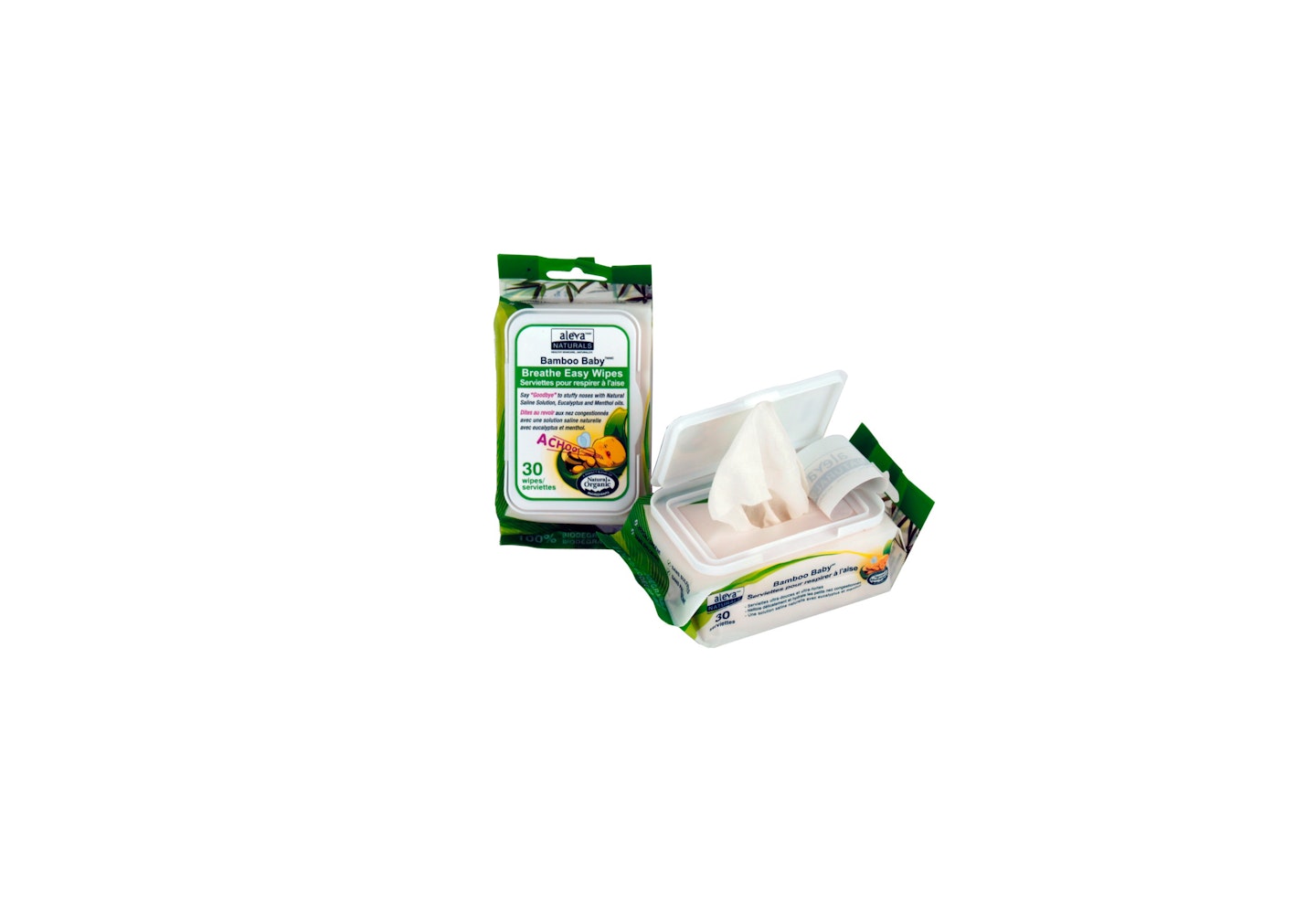 7 of 11
7 of 11Aleva Naturals Bamboo Breathe Easy Baby Wipes, £8.80, amazon.co.uk
These wipes are made from bamboo and enriched with a natural saline solution, eucalyptus and menthol oils. They’re also soft on sore, dry noses, so are great if your baby (or you) is bunged up. They are also 100% biodegradable so can be flushed away like normal toilet paper.
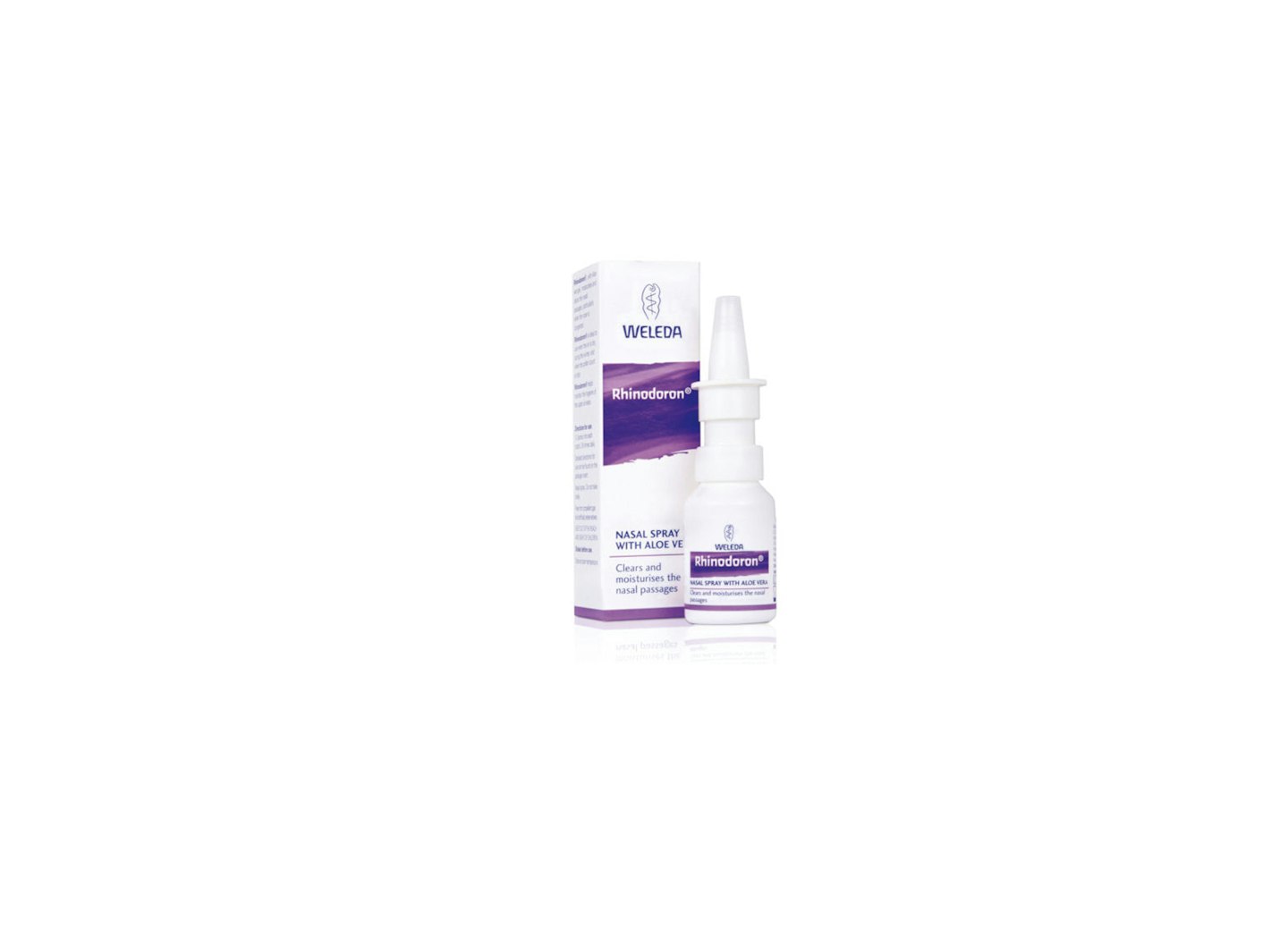 8 of 11
8 of 11Weleda Rhinodoron Spray, £7.95, Amazon
This natural nasal spray contains moisturising aloe vera and saline solution to help break down and clear the crusty covering inside a congested nose that makes it difficult for your toddler to breathe. Suitable from three months.
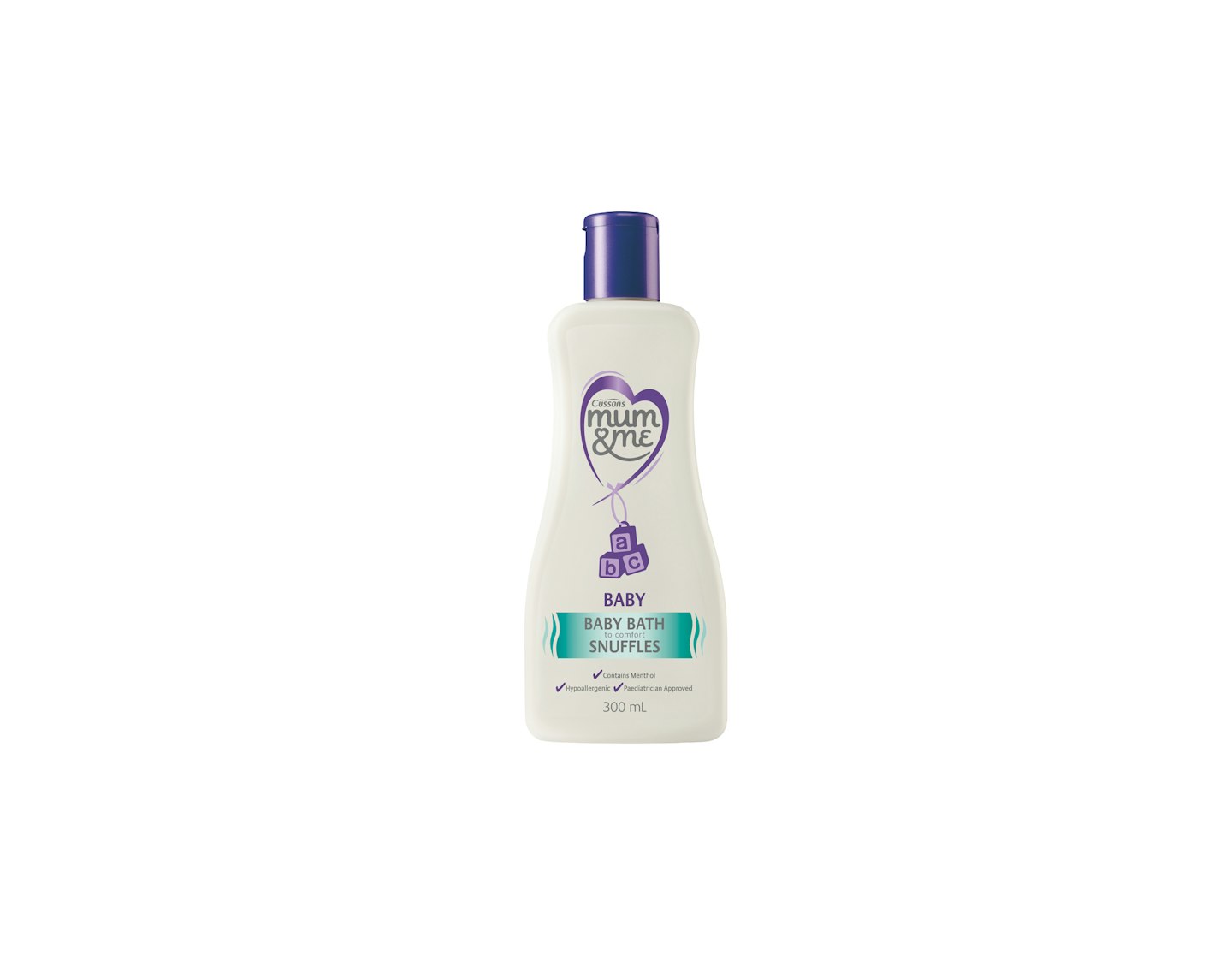 9 of 11
9 of 11Cussons Mum & Me Baby Bath to Comfort Snuffles, £3.49, Boots.com
A warm bath will help to soothe a poorly baby and the damp atmosphere can help to loosen mucus in your baby’s bunged up nose, too. Cussons Mum & Me Baby Bath to Comfort Snuffles contains a menthol fragrance to help ease congestion. Mild bubbles gently cleanse and the added moisturiser helps to care for your baby’s skin. It’a also hypoallergenic and paediatrician approved.
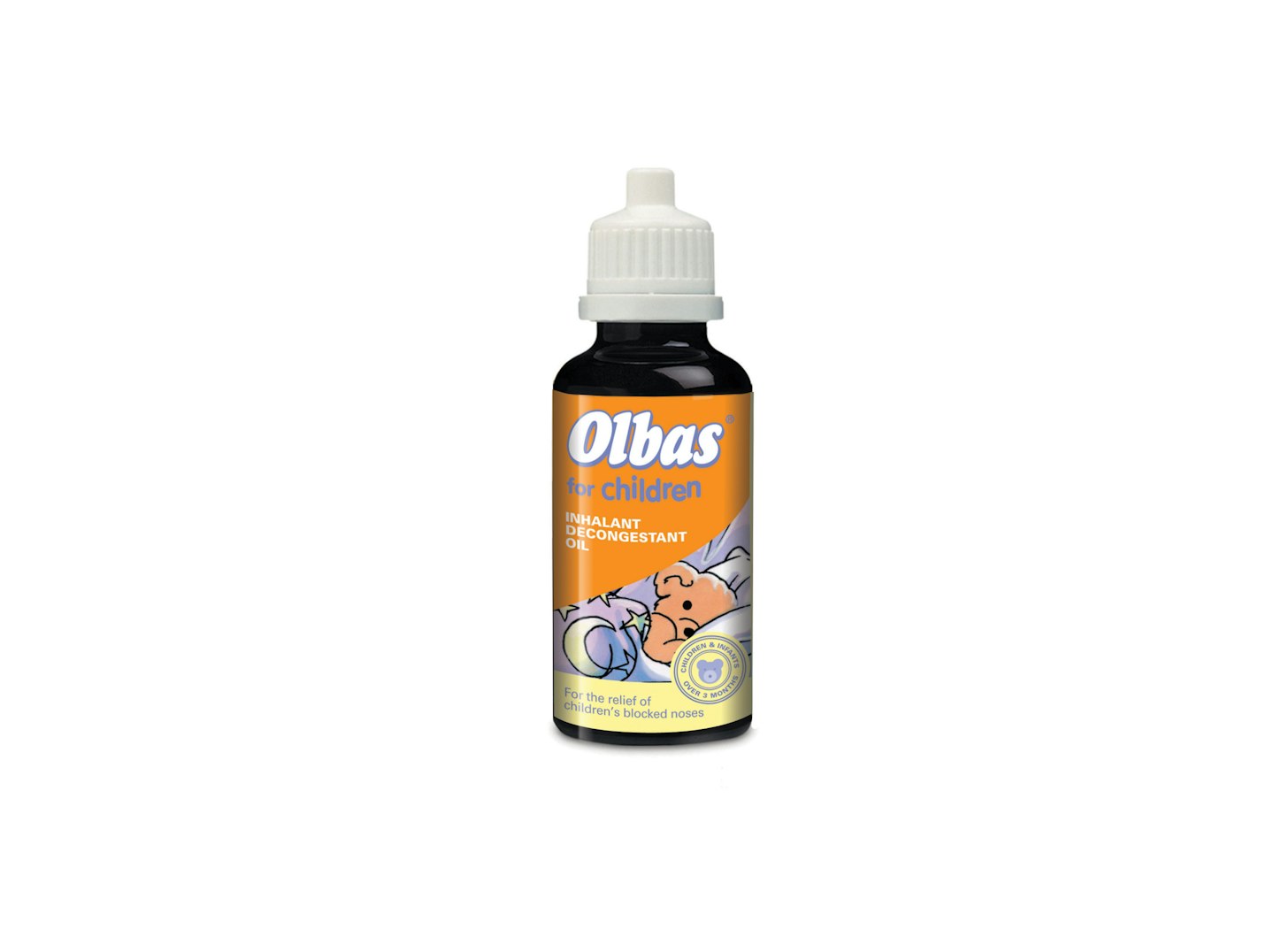 10 of 11
10 of 11Olbas For Children, £3.80, Amazon
Specially formulated for infants over three months, Olbas for Children contains a combination of essential pure plant oils, including eucalyptus, mint, clove, juniperberry and cajuput to act as a gentle decongestant to relieve stuffy noses and catarrh and ease natural breathing. Simply place four to six drops on a tissue and hold close to your toddler’s nose so he can breathe in the vapour.
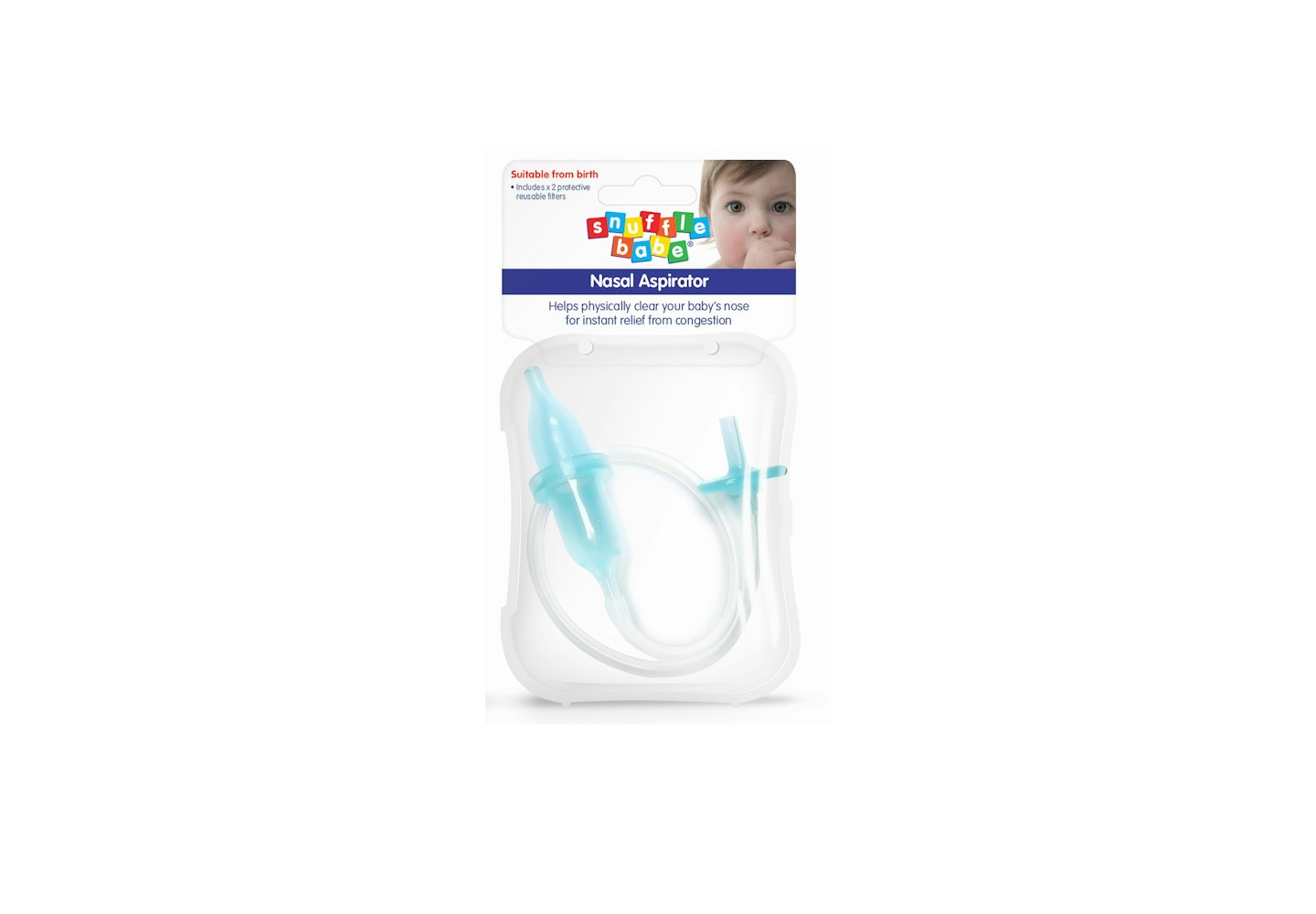 11 of 11
11 of 11Snufflebabe Nasal Aspirator, £7.49, Amazon
The device works by helping you suck the mucus out of your baby’s nose to ease his congestion. No, don’t worry, you don’t have to eat your baby’s bogies. There’s a clever filter that means you insert the tube into your baby’s nose, and suck, without getting a mouthful of mucus.
